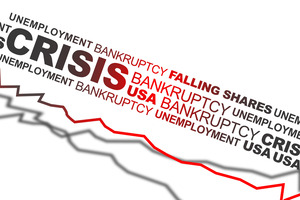If you’re struggling financially, chances are you know how important it is to pay your bills even if you’ve been unable to do so. The truth is paying your bills should be a priority. However, there comes a time when paying your debts could work against you. How is that?
If your financial situation is dire enough that you’re considering bankruptcy, paying off your debts right before filing can be detrimental to your situation. There are debtors who decide to pay off a credit card or other debt right before filing. They assume it will make their situation heading into bankruptcy better, but that’s not the case.
Keep in mind, just because you “catch up” or pay off the debt you owe on a credit card doesn’t mean you’ll be able to use that card once you file for bankruptcy, so if this is your strategy, you’ll want to think again. Bankruptcy does not permit you to keep and use a credit card just because it’s up-to-date or paid off. As a matter of fact, most credit card companies close your account as soon as you file for bankruptcy, even if you do not list them as a creditor when you file.
Paying Off Debts Can Harm Your Bankruptcy
In addition to not using credit card payoffs as a strategy to gain access to credit during a bankruptcy, paying off cards can actually hurt you when you file for bankruptcy. Repaying any debt just prior to filing can result in other debts not being discharged when you file.
If you are filing for Chapter 7 bankruptcy and you pay off a debt just before filing, this can result in your bankruptcy not going as planned.
According to bankruptcy laws, any amount of money you pay to a creditor within the 90 day window before you file that is higher than $600 can be “confiscated” by the bankruptcy trustee. This can occur in both Chapter 7 and Chapter 11 bankruptcy cases. This is because it is viewed as a preferential payment and by filing for bankruptcy, you lose the authority to determine which of your creditors is preferred over others. And if the debt you repaid was made to someone you know personally, such as a family member who lent you money, that window of permitted confiscation extends to a year.
Long story short, paying debts prior to filing can change your bankruptcy case from a no-asset Chapter 7 filing to a bankruptcy with assets. This increases your obligation to pay certain debts and can result in you being responsible for debts in full after your bankruptcy is complete.
For more information on what life might look life after bankruptcy, check out this information from Bankrate.com.
What Should You Do about Existing Debt?
In some cases, you’ll have no choice but to not pay a debt because you have no money. This is the reason many file for bankruptcy in the first place.
On the other hand, if you’re someone who has money but it’s not enough to undo your financial situation, what you should do and what needs to be paid before you file for bankruptcy can be confusing. This is one of the reasons it’s so important to speak to a bankruptcy attorney as soon as you begin thinking about filing.
There are instances in which it might be advisable to continue making payments (but not pay off) on your credit card debt, and your attorney can review your case and determine the best way for you to proceed.
If you’d like more information about when it’s a good idea to stop paying your debts or you are ready to discuss bankruptcy with an experienced professional, contact the Law Offices of Robert M. Geller at 813.254.5696.




























![Signs That You May Need to File Bankruptcy [Infographic]](https://djml3wkzi26ea.cloudfront.net/wp-content/uploads/2021/01/signs-chap7-v-chap13.jpg)
![How To File for Bankruptcy [Infographic]](https://djml3wkzi26ea.cloudfront.net/wp-content/uploads/2020/07/bankruptcy-steps-infographic-web.jpg)










